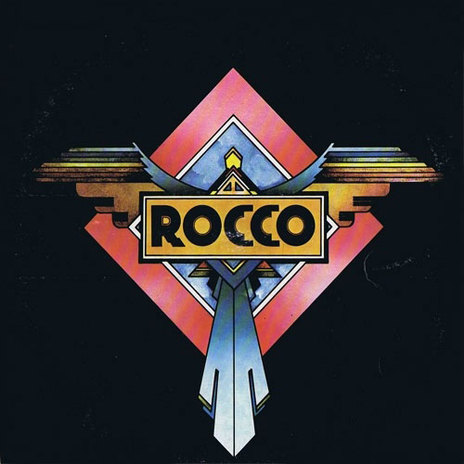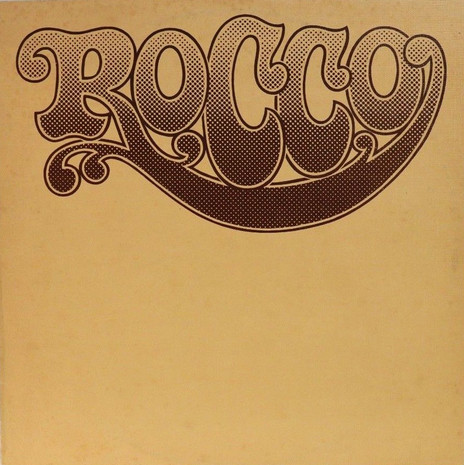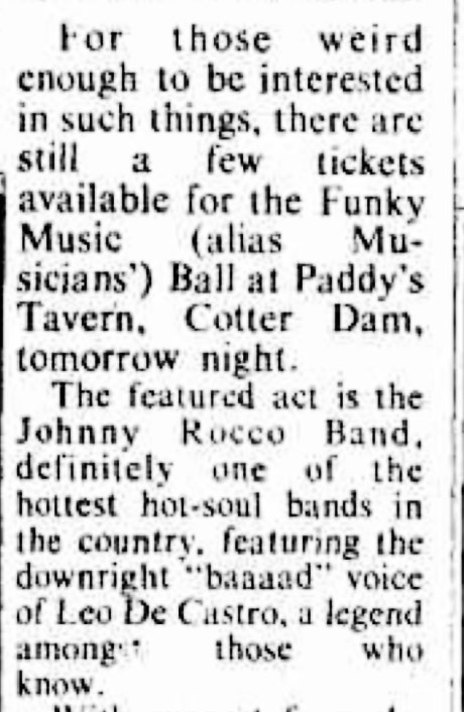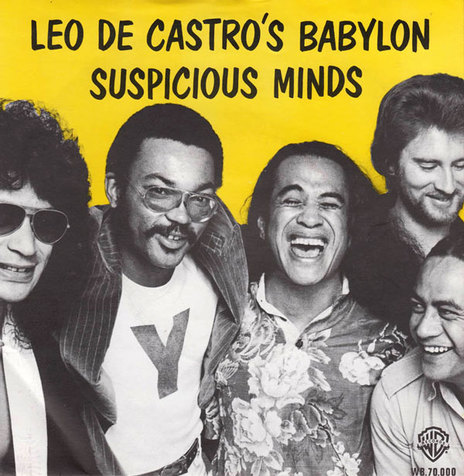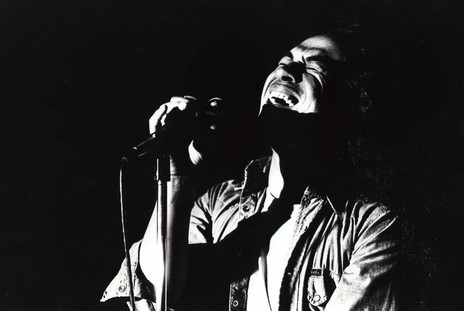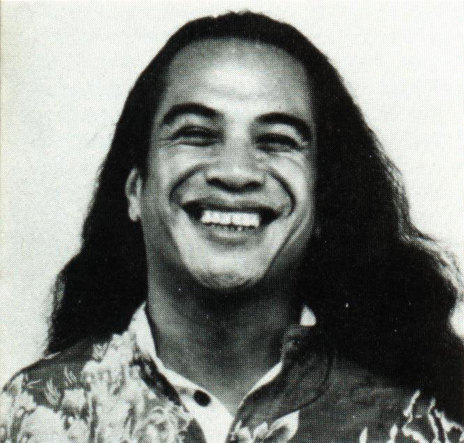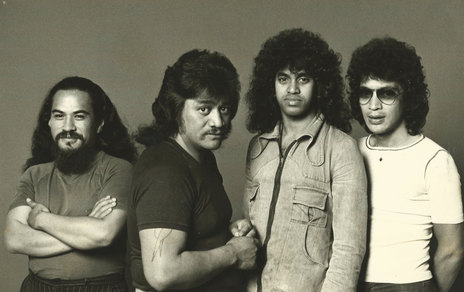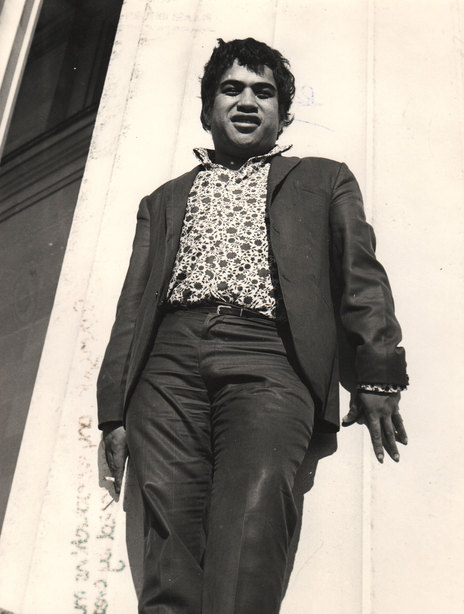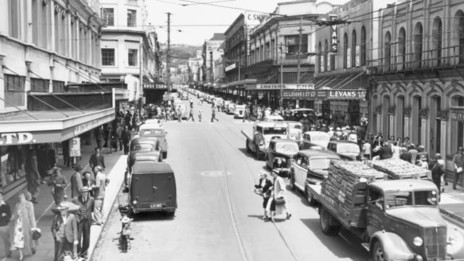Named after the Brazilian doctor that delivered him, Kiwi Leo de Castro Kino came from the tiny King Country township of Benneydale, 35 kilometres from Te Kuiti. He was from a musical family and hearing Little Richard at an early age had a profound influence on him. So much so that he became a very successful Little Richard impersonator, winning TV talent shows. The influence of Little Richard stayed with him throughout his career. In 1966, his family moved to Ponsonby in Auckland and while still at school he was invited to perform regularly in a range of venues across Auckland.
Still in his teens, his first professional gig came when he was invited to join the Dallas Four, known for their tight-knit vocals and polished harmonies.
In 1968 and still in his teens, his first professional gig came when he was a guest vocalist with the Dallas Four, known for their tight-knit vocals and polished harmonies. When de Castro went solo, promoter Barry Earle made arrangements for him, then still only 18 years old, to go to Australia. But because of his age, Earle had to ask his mother for permission. With his mother’s blessing he arrived in Melbourne and was set straight to work with the Browns, an established soul band which included Ronnie Peel from The Pleazers. Between 1969 and 1970 De Castro worked regularly, gigging with the Browns.
After the Browns, he went on to front King Harvest with Jim Doyle, Mark Kennedy, Duncan McGuire and Steve Yates in 1970. Only together for 12 months, the group had a revolving door of membership through its ranks. De Castro proved his versatility, bringing a bucket load of attitude and soul to what were fairly standard choices of cover material at the time. The band proved popular on the burgeoning Melbourne progressive rock circuit. King Harvest also gave de Castro his first recording experience with an extended jam cover of the Rolling Stones’ ‘Jumping Jack Flash’ over two sides of a single. But the band’s biggest success came with a Jimmy Webb medley ('Wichita Lineman’/ ‘By The Time I Get To Phoenix') they released as a single. It made the Top 20 in Adelaide, Melbourne and Brisbane. But the band soon started to disintegrate and by September 1971 it was over.
After King Harvest, de Castro formed Friends in December 1971. A “supergroup” from the beginning, it initially included Charlie Tumahai (Aesop’s Fables, Healing Force and later, Bebop Deluxe and Herbs), Rob Mackenzie (Mackenzie Theory), Phil Manning (Chain), Doug Green (Doug Parkinson in Focus) and Ray Oliver (King Harvest). Many other Australian musical luminaries passed through the band. Like King Harvest, Friends built a strong live following in Melbourne. The band also had regular work across Australia. In 1970, they appeared alongside Billy Thorpe and the Aztecs, Jeff St John, Chain, Tully, Max Merritt and The Meteors and others at what was Australia’s first rock festival – the Pilgrimage For Pop Festival at Ourimbah, near Sydney. Once Around The Sun, the documentary film of the festival, highlights two scorching performances from the band covering ‘Great Balls Of Fire’ and Little Richard’s ‘Jenny Jenny’ with de Castro in commanding voice.
In January 1973, Friends played the second Sunbury Music Festival.
The popular Australian entertainer and entrepreneur Col Joye liked the band and regularly recorded them in his studio. In 1972, they released the first of two excellent singles, called ‘B.B. Boogie’. In the same year the band successfully supported John Mayall’s tour of Australia.
In January 1973, Friends played the second Sunbury Music Festival with Billy Thorpe and the Aztecs, Coloured Balls, Band of Light, Max Merritt and The Meteors, Chain and others. Their excellent version of Leonard Cohen’s ‘Bird On A Wire’ appeared on a number of live recordings of the festival, but the band largely played a classic rock and roll set including a version of ‘Lucille’ which was later released as the second and final single (live at the Festival Hall, Melbourne) that reached the Australian Top 40.
During this period de Castro’s increasing struggle with drugs was taking its toll and by the end of 1973, Friends came to a natural end as disco and funk were in the ascendency. After several short-lived bands, including New King Harvest and De Castro, he formed the Johnny Rocco Band with New Zealanders Harris Campbell and Tui Richards. They were joined by former members of Renee Geyer’s early group Mother Earth, Russell Dunlop, Tim Partridge and Mark Punch. At the same time he became a sought after session singer.
The Johnny Rocco Band had a residency at the Polaris Room and Sydney’s Kingsgate Hotel in Kings Cross. In 1975 they recorded their only album, Rocco. It featured ‘Heading In The Right Direction’, later recorded by Renee Geyer. The album, produced by Russell Dunlop with New Zealander Wahanui Wynyard as engineer, is a fantastic funk workout and was released in the US a year later on 20th Century Records. Billboard called the album "Dynamite".
Continued interested from the label failed to materialise and as a result the band soon broke up with individual members going on to form jazz fusion group Crossfire and join Renee Geyer’s backing band. Despite de Castro’s bad memories of this time, the album is now highly sought after by collectors and has since been recognised as an Australian funk classic.
From Aussie Funk Blog (DJ Kinetic) in December 2007:
"Probably the best example of funky rock in an Australian release. There’s almost a Kool and the Gang sound in parts of this record with tracks like ‘Funky Max’ (also the B-side of a 7-inch single) that really emphasise minimal vocal chants and a vamping groove all over a heavy rhythm section. Most tracks on the album are originals too, which makes for a nice change..."
After The Johnny Rocco Band, de Castro was still a sought after session vocalist for a range of studio work including a number of commercials and jingles. But he was still struggling with his dependencies and his behaviour was becoming increasingly erratic. In 1980, he headed back to New Zealand and worked in a mill for a couple of years. While in New Zealand, Tim Partridge invited him back to Australia to join Babylon in 1984. The band recorded a forgettable reggae version of ‘Suspicious Minds’. After Babylon, de Castro relocated to Tasmania.
In 1987, promoter and friend Bob Burns invited de Castro to Sydney to play at The Basement with the Voodoo Soul Band. The band included Mark Punch, Jimmy Doyle, Mark Kennedy, Dave MacRae, David Green, Andy Thompson, Jason Brewer and Jason McDermid. Playing a range of funk and soul classics, for de Castro the experience felt like a “welcome back to Sydney”. The performances were popular. They were also recorded and released at the time in a limited form on cassette.
After the Basement sessions, Burns was keen to capture de Castro in the studio, and approached a range of people for potential duets that unfortunately never eventuated. Instead he began work on a project for de Castro to sing jazz standards with Melbourne's Dancehall Racketeers and Sydney’s The Roger James Band (called the Long White Clouds). Although the recordings were made in 1988 they were put on hold when de Castro “went bush” back to South Auckland in 1995 to live with his sister. In 2007, both the Voodoo Soul and Long White Clouds sessions were finally issued on CD by Big Beat Music.
Although recordings since then have been scarce, de Castro played regularly in Hobart. A YouTube clip of a 2008 farewell performance in Hobart with the Warriors showed he was still in fine voice, particularly on Bobby Womack’s ‘Daylight’. In 2010, de Castro returned in New Zealand for surgery, and to live close to family.
In 2017 a 2CD compilation album Leo de Castro & Friends was released on Aztec. It featured recordings from throughout his career, including selections from live shows such aas the Sunbury and Rock Isle festivals of 1972 and 1973. He told liner notes writer Ian McFarlane, “I’ve got a heart condition now. Some health issues that need looking at”.
Leo de Castro passed away on 3 March 2019.
Primary sources:
- Keith Newman - Leo de Castro – The Elusive Legend – Radio NZ, Musical Chairs, 18 February 2012
- Maori TV – Unsung Heroes of Maori Music – Leo de Castro ‘Soulman’ and Sonny Day ‘Bluesman’ November 2012
